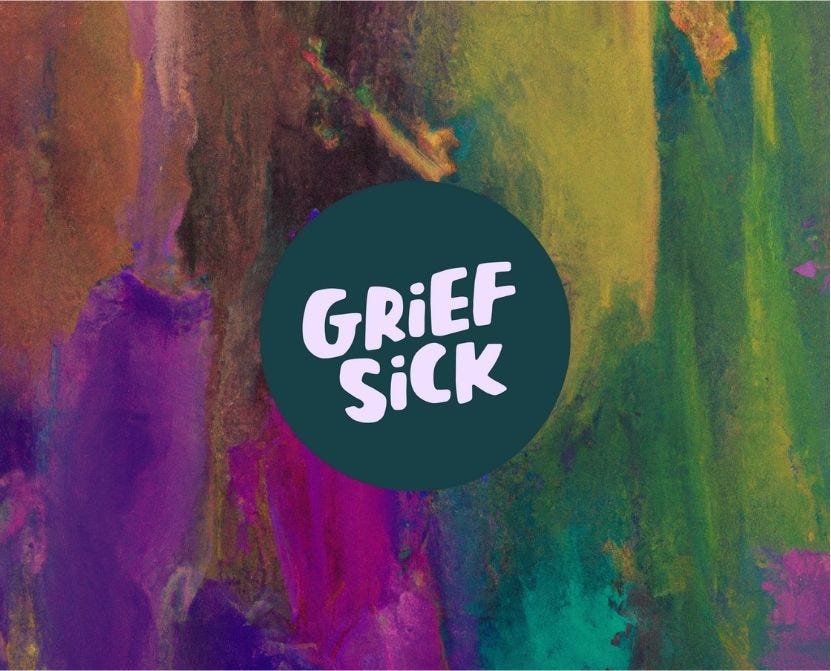I’m Emily, she/her, chronically ill (primarily with ME/CFS), chronic illness advocate,
grief-tender, regenerative organisational designer, coach and writer. Read about my journey in this interview, and about GriefSick in Edition #1.
A brief share
The brilliant
interviewed me (and other chronically ill folk) for an article in Vox about navigating chronic illness. I talked about grief, rage, community and witnessing in chronic illness — all of the reasons I started GriefSick. It’s an empathetic piece, with a lot of wisdom shared, bound together by Rachel’s beautiful writing. An excerpt:We tend to associate grief with death and bereavement, but chronic conditions also come with loss and grieving. “You might lose all sorts of things through illness,” said Emily Bazalgette, who suddenly came down with unexplained, debilitating fatigue at the age of 28 and was eventually diagnosed with a host of chronic diseases including long Covid. “You might lose your identity, your career, relationships, hobbies, your lifestyle. Your sense of safety, your sense of trust in your body, and also the futures that you had imagined for yourself. That’s a lot.”
Fill in this short form if you’d like to guest-write an edition of GriefSick, be interviewed for GriefSick or collaborate in another way.
Email me at emily@emrosebaz.com if you’d like to commission me to write for your publication, speak at your event, invite me on your podcast or send me some feedback.
I suspect that GriefSick is not for everyone, all of the time. There have been points in the past eight years of my illness where I could not have engaged with this newsletter. Maybe that’s where you are now, and if so, I encourage you to protect yourself by not subscribing.
GriefSick is free. But if you enjoyed this post, please consider contributing to the Ko-Fi. 100% of KoFi payments go towards compensating GriefSick guest writers and illustrators.




I’ve filled out your form. I would love to connect and share with you, however it may look like! 💜💛💜
Love the vox article - that’s the best article on chronic illness I’ve ever read! One that actually knows what it’s on about - the opposite of the let’s control and manage approach we’re usually fed. I’d also been wondering at the latest chronic illness stats for the US - when I first started my research back in 2018, it was 50% for the US (now 60%) and 30% for the UK (now 34%).
I’d love to be interviewed by you so will fill in the form💙